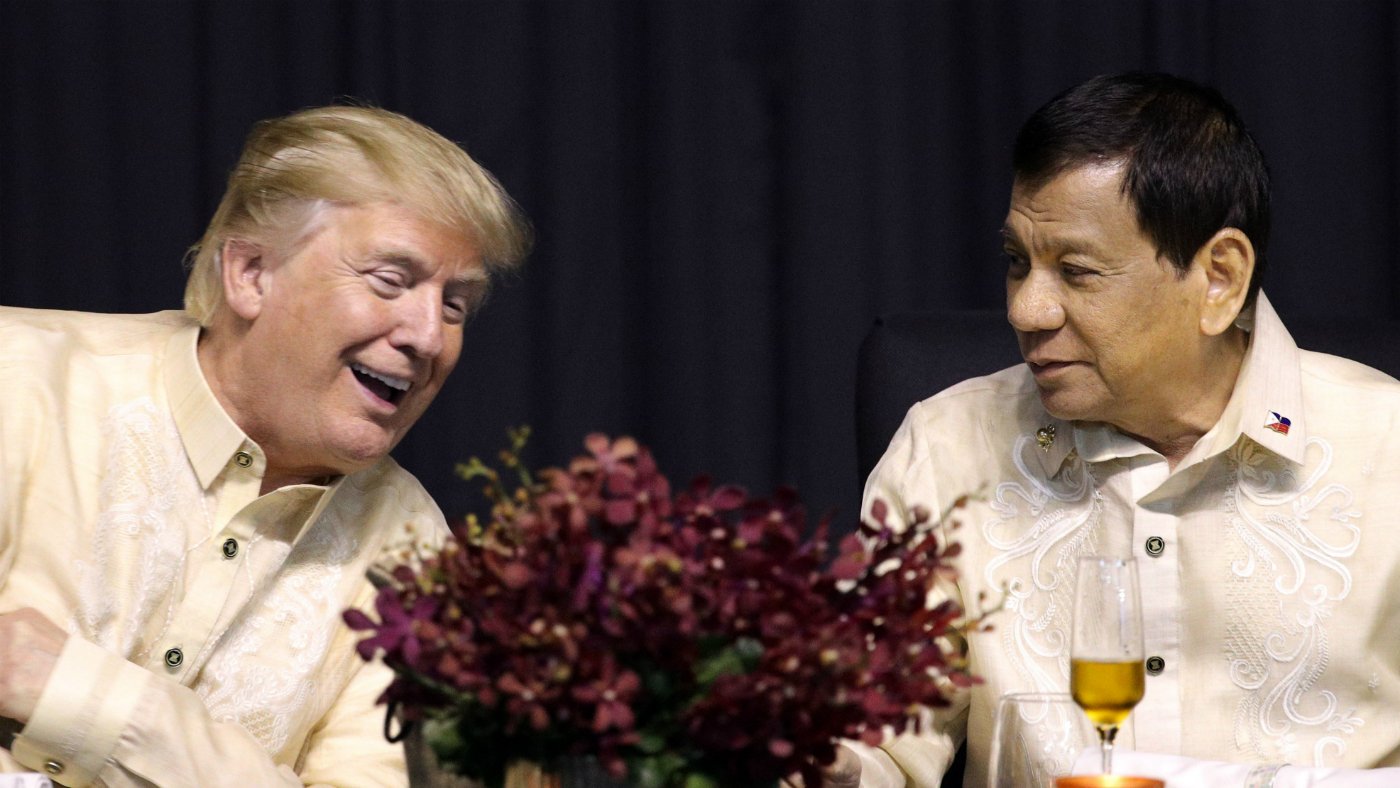What is populism?
The movement has swept the globe and dominated politics in recent years

A free daily email with the biggest news stories of the day – and the best features from TheWeek.com
You are now subscribed
Your newsletter sign-up was successful
From an ideological perspective, there doesn’t appear to be much in common between Jeremy Corbyn’s promises to provide “for the many, not the few”, Donald Trump’s threats to crack down on mainsteam media over “fake news”, and Philippine President Rodrigo Duterte’s gleeful endorsement of vigilante violence against drug dealers.
Yet each of these policies is the brainchild of a leader who has been described as a “populist” - a political movement that has made rapid gains across the world.
So what does populism mean? According to Dutch political scientist and author Cas Mudde, populism dictates that society is separated into two groups at odds with one another: “the pure people” and “the corrupt elite”. To put it another way, populism is a politicised reworking of the “us vs. them” mentality.
The Week
Escape your echo chamber. Get the facts behind the news, plus analysis from multiple perspectives.

Sign up for The Week's Free Newsletters
From our morning news briefing to a weekly Good News Newsletter, get the best of The Week delivered directly to your inbox.
From our morning news briefing to a weekly Good News Newsletter, get the best of The Week delivered directly to your inbox.
But such a description has limits. As the BBC notes, there’s a “difference between being popular and being populist”. And if populism is supposed to represent the true voice of the people, it seems strange that the label is “never far from the lips of [establishment] politicians” but only “rarely” employed by populist politicians themselves, says Dr Andy Knott, of the University of Brighton, in an article on The Conversation.
Encompassing a multitude of leadership styles ranging from social democracy to ultra-authoritarian, what is the true definition of populism in modern politics?
A new politics
The Independent characterises populism as drawing “a firm distinction between a morally pure ‘people’, whom the populists claim to exclusively represent and have the exclusive right to define, and the corrupt and illegitimate ‘elites’”.
A free daily email with the biggest news stories of the day – and the best features from TheWeek.com
In his book What is Populism, Jan-Werner Muller, a professor of politics at Princeton University, suggests that populism is a “moralistic imagination of politics” that does not cater to a specific set of social, political or economic principles. Instead, it usually has to be combined with more substantive ideologies in order to be effective, such as nationalism, liberalism or socialism.
As such, populist movements across the world can fall under the same umbrella despite often having little in common on the surface, “because of their disregard for democratic norms and their invocations of the ‘will of the people’ to intimidate opponents”, adds The Independent.
The populist spectrum
Dutch author Mudde argues that “most successful populists today are on the right, particularly the radical right”, and that the movement has become associated with anti-immigration and nativist political views, such as those expressed by US President Donald Trump and Hungarian Prime Minister Viktor Orban.
But as the BBC says, populist parties can fall anywhere on the political spectrum. “In Latin America, there was Venezuela’s late president [Hugo] Chavez. In Spain, there is the Podemos party, and in Greece the label has also been applied to Syriza,” the news site says. “All these are on the left.”
The Independent notes that populist politicians often mix and match policies - particularly economic - from across the spectrum. Marine Le Pen’s National Front party in France, for instance, takes a hard-right stance on immigration but has also proposed reducing VAT, a traditionally left-wing policy.
Similarly, “some elements of UKIP’s programme, such as reversing benefit cuts and increasing corporation tax, are often advocated by those on the left”, the newspaper continues.
“Alternatively, populists can govern in a regressive way, that does nothing to redistribute resources to the poor and in which the rich grow richer. Think Putin’s Russia, where the number of billionaires has doubled in a decade.”
Power to the people
As Bloomberg’s Peter Coy points out, populism’s message of being “for the people” makes it “sound like a compliment” but it is often “used as a put-down”. Why?
To some, the conflation of populism with the far-right is too dismissive of a legitimate political movement. Conservative US think-tank the Claremont Institute claims that the language used by many media outlets when referring to populism is derogatory.
According to the institude, media outlets will “call someone a populist is to insinuate that he is a fascist, but tentatively enough to spare the accuser the responsibility of supplying proof”, and will even suggest that populism is “an invention of the very establishmentarians who claim to be fighting it, an empty word that allows them to shut down with taboos any political idea that they cannot defeat with arguments”.
Knott expands upon this point in his article on The Conversation, suggesting that establishment politicians and media outlets are not taking populism seriously enough. According to the “establishment view” espoused by politicians such as former British PM Tony Blair, populists “don’t understand politics” and the movement will soon die out as voters return “to their senses”, Knott writes.
Whether that prediction proves correct, one thing is certain, he concludes: “Globalisation no longer seems quite as inevitable as Blair claimed.”